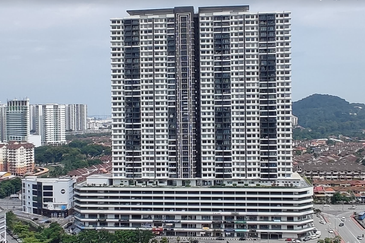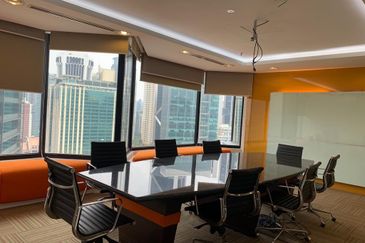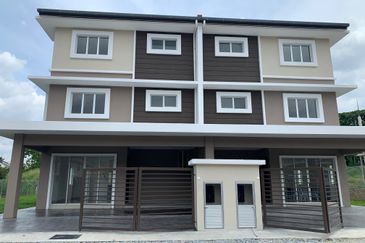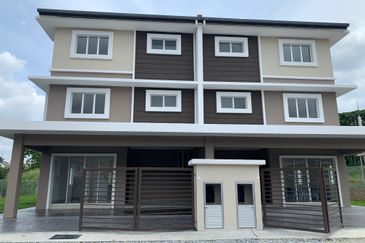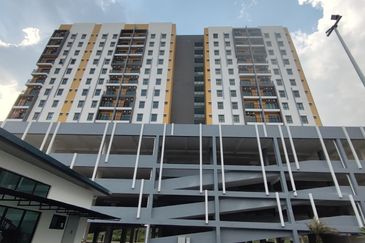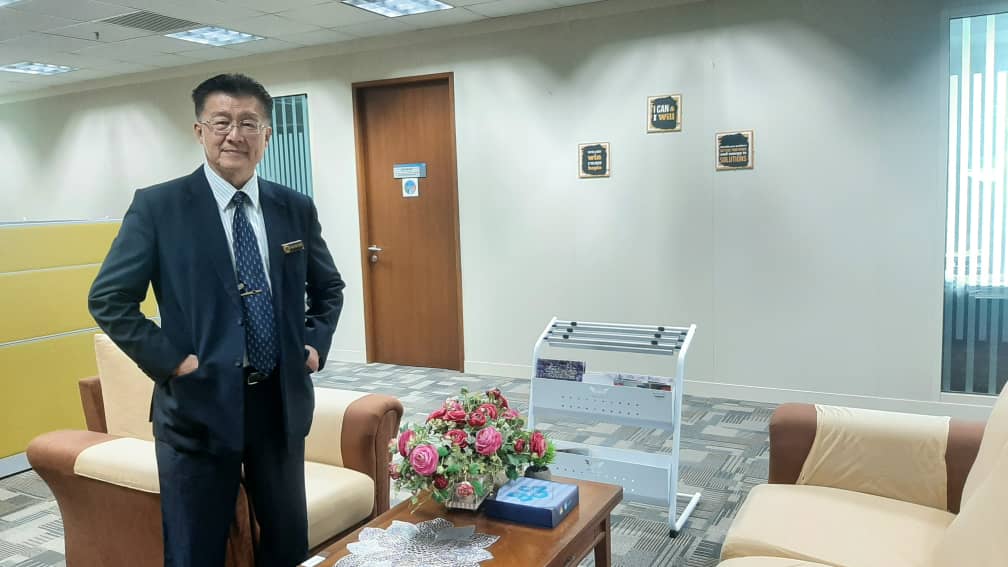
- It is clear under Act 118 that the liquidator can play an important role. As we have stated, Act 118 was amended in year 2015 to include a liquidator into the definition of a housing developer in the event the housing developer is in liquidation. The underlying rationale is for liquidators to attempt a revival of the abandoned project.
The National House Buyers Association (HBA) has time and again reminded the housing minister and those under the ministry’s charge on the need to rein in the conduct of those so-called court-appointed officers, namely liquidators.
For a long time now, exploitative private liquidators have been imposing exorbitant administrative fees up to 2% or 3% of the purchase price on purchasers to carry out the duties of “de facto” housing developers vis-à-vis distribution and “sign off” of transfer of the ownership papers aka titles (landed or stratified) to the purchasers who have already paid the entire sales price.
(Read:
Victims of runaway developers face double woes from exploitative liquidators
Liquidators making fortune from homebuyers’ misfortune
Developers not allowed to charge above RM500 administrative fee)
Control of Court over liquidators
Although the situation is far from satisfactory yet, HBA notes that a recent court decision is pointing to the right direction.
In the High Court case in Penang, His Lordship Justice Dato’ Quay Chew Soon made a landmark decision on Dec 12, 2023 in the case of Chong Kok Wooi in a representative capacity representing 33 unit owners in Marinox Sky Villas Condominium vs Liquidators for Masmeyer Development Sdn Bhd.
The following are excerpts of pertinent quotes of the Judge’s written grounds of decision, inter-alia:
“Section 510 of the Companies Act, 2016 (CA), which reads:
The Court shall take cognisance of the conduct of liquidators, and if a liquidator does not faithfully perform his duties and observe the prescribed requirements or requirements of the Court or if any complaint is made to the Court by any creditor or contributory or by the Official Receiver in regards to the conduct, the Court shall inquire into the matter and take such action as the Court thinks fit.
From the above provisions, I consider that the actions and conduct of a liquidator are subject to the scrutiny of the court. A liquidator must act reasonably in the discharge of his duties. A liquidator cannot treat any discretion conferred upon him, as giving him a carte blanche to act according to his whims and fancy.
In the case of Perumahan NCK Sdn Bhd vs Mega Sakti Sdn Bhd (2005) 1 LNS 162, the High Court said that the recurring theme is that fairness and reasonableness are the important criteria when scrutinising a liquidator’s remuneration. A liquidator must be able to justify his remuneration based on that benchmark.
The Courts have intervened in situations of inequality in bargaining power. Similarly to the present case, the Court of Appeal in KAB Corporation Sdn Bhd & Anor vs Master Platform Sdn Bhd (2019) 1 LNS 975 found that there was a significant imbalance of power and intervened to modify the 1% administrative fee *”of RM65,000 charged to a nominal fee of RM500” being fair and reasonable.
Under Section 3 of the Act 118, “housing developer” is defined to include a liquidator of the housing developer. It follows that the liquidator is bound to complete the defunct developer’s duties and obligations under the sale & purchase agreements (SPA) and Act 118. In this instance, he is to ensure that the strata titles are duly registered in the names of the purchasers, as set out in clause 11 of the SPA. The liquidator is statutorily bound to carry out the duties and obligations of the company.
Under the principle of bare trusteeship, the liquidator ought to complete the perfection of the titles transfer at no costs to the purchasers: Federal Court case of Tan Ong Ban v Teoh Kim Heng (2016) 3 CLJ 193 at 205.
The unit owners are entitled to appoint their own solicitors, if they so wish, without having to pay the liquidator’s nominated solicitors.
The liquidator claims that the standard administrative fee for execution of the memorandum of transfer (MOT) is approximately 1% to 2% of the purchase price.
- Firstly, this is a bare allegation that was unsubstantiated;
- Secondly, I think the administrative work to execute the MOT is quite standard, regardless of the value of the property
In Kumpulan Sepakat Konsult vs Cherish Springs Sdn Bhd (2022) 1 LNS 2804, the Kuala Lumpur High Court, His Lordship Justice Nadzarin bin Wok Nordin rejected the liquidator’s fee of RM4 million for obtaining a blanket consent as being unjustified. The High Court noted that the work done for each unit is the same.
*”By a Court Order dated Oct 13, 2022, the High Court ordered amongst others: The liquidator of the Respondent cap his administration fees and vetting fees to a maximum sum of RM1,000 for each transfer of the strata titles of PJ Centrestage to its unit/parcel owner.”
*researched and summarised by the writer of this article in each of the case.
The Plaintiff adduced evidence that other parties who carried out the same tasks, such as the Insolvency Department and the Companies Commission of Malaysia, only impose a fee of RM500.
Conclusion: In the light of the above, I am of the view that a sum of RM1,000 per unit is fair and reasonable.”
NOTE: In the written grounds of decision, the Judge took due judicial notice to our published article titled: Govt halts exorbitant fees by MDI-appointed agents.
Nine years and still waiting
JPN has assured HBA that a new set of regulations will be formulated to cover the scope, role and remuneration scale fees of private liquidators. The aim is to regulate the conduct of liquidators, judicial managers and receivers and managers with an emphasis on curbing dysfunctional acts, penalties for non-compliance, investigation, enquiries and criminal prosecution, among others.
Already we have had two meetings to discuss the roles, responsibilities and fees of private liquidators, the last of which was in November, 2022. However, since then, all have been silent in the battle front despite reminders from HBA.
This regulation should be expeditiously formulated and enforced to prevent purchasers and owners from being affected by irresponsible and exploitative liquidators.
It is clear under Act 118 that the liquidator can play an important role. As we have stated, Act 118 was amended in year 2015 to include a liquidator into the definition of a housing developer in the event the housing developer is in liquidation. The underlying rationale is for liquidators to attempt a revival of the abandoned project.
Nonetheless, we may require further legislation to clarify the duties and powers of the liquidator under Act 118. It has been quite a long time to wait to see this become reality – nine years to be exact – and the victims are still kept in limbo.
This article is intended to offer an insight of the case authorities and is not intended to be nor should it be relied upon as a substitute for legal or any professional advice.
This article is written by Datuk Chang Kim Loong, Hon Secretary-General of the National House Buyers Association (HBA), non-governmental and not-for profit organisation manned by volunteers.
HBA can be contacted at:
Email: [email protected]
Website: www.hba.org.my
Tel: +6012 334 5676
The views expressed are the writer’s and do not necessarily reflect EdgeProp’s.
Looking to buy a home? Sign up for EdgeProp START and get exclusive rewards and vouchers for ANY home purchase in Malaysia (primary or subsale)!
TOP PICKS BY EDGEPROP
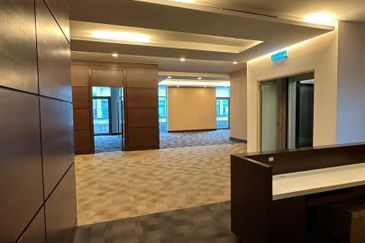
Damansara Heights
Damansara Heights, Kuala Lumpur

D'Pristine Medini
Iskandar Puteri (Nusajaya), Johor
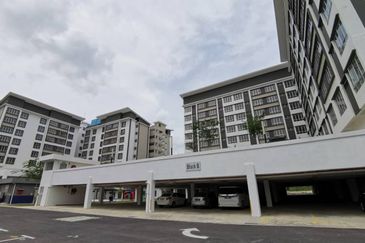
Vista Sri Tanjung Condominium
Semenyih, Selangor

Taman Mutiara 1, Hujung Permatang
Kuala Selangor, Selangor

